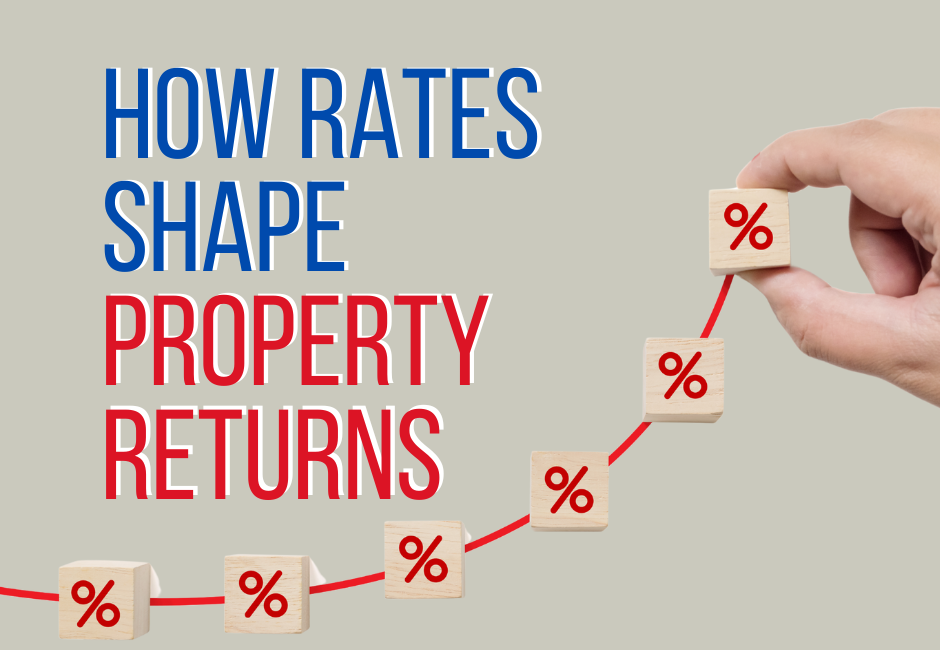
Mortgage Broker or Bank?
Home Loan Choices: Mortgage Broker vs. Going Directly to the Bank
Choosing a home loan is one of the most important financial decisions many people will make. Whether you’re purchasing your first home, upgrading, or investing in property, the decision on how to approach the mortgage process can significantly impact the terms of your loan, the time and effort involved, and potentially your long-term financial stability. There are two main paths for securing a home loan: working with a mortgage broker or going directly to the bank and applying yourself. Each option comes with unique advantages and disadvantages, and understanding these can help you make an informed choice.
This article explores the pros and cons of using a mortgage broker versus applying directly through a bank, covering factors such as loan selection, convenience, expertise, and the potential for cost savings.
Home Loan Choices: Mortgage Broker vs. Going Directly to the Bank
A mortgage broker is a licensed professional who works as an intermediary between borrowers and multiple lenders, including banks, credit unions, and non-bank lenders. Brokers assess a borrower’s financial situation and provide tailored loan options, drawing from a network of lenders. In contrast, when going directly to a bank, the borrower works solely with that institution and is offered products from that single lender’s range.
Choosing between a mortgage broker and a bank comes down to your financial needs, preferences, and experience with home loans. To help you make an informed decision, let’s examine the pros and cons of each option.
Pros of Using a Mortgage Broker
- Access to a Wide Range of Lenders and Products
Mortgage brokers have access to a broad panel of lenders, offering you a wide selection of loan products. This variety gives borrowers a better chance of finding a loan that suits their unique financial situation, whether they’re looking for a low interest rate, a flexible repayment structure, or special features such as offset accounts. By contrast, banks offer only their own products, which may limit your options. - Tailored Recommendations and Expertise
Brokers are experienced in assessing a borrower’s financial goals and needs, enabling them to recommend a suitable loan structure. If you’re unsure of which loan features are best for you, a broker can provide guidance on fixed vs. variable rates, redraw facilities, or other aspects based on your financial profile. This level of personalisation can be valuable for first-time buyers or those unfamiliar with the mortgage market. - Potential for Better Rates and Terms
Mortgage brokers have established relationships with multiple lenders and can often negotiate better rates on behalf of the borrower. Brokers may also have access to exclusive loan products or discounted rates through their lender network. While banks may occasionally offer promotions, brokers generally have more room to negotiate with different lenders to secure favourable terms for their clients. - Expert Guidance in Complex Situations
For borrowers with complex financial profiles – such as self-employed individuals or those with multiple income sources – securing a loan can be challenging. Brokers are skilled in navigating complex situations and have a deep understanding of different lender requirements. This knowledge can increase your chances of securing a loan that aligns with your unique financial situation, even if you don’t meet the standard criteria that banks look for in applicants. - Support for First-Time Buyers and Investors
Mortgage brokers are often familiar with the specific needs of first-time buyers and investors. They can provide guidance on government incentives, explain investment-specific loan features, and ensure that borrowers understand the implications of different loan terms. This support can be particularly valuable for new buyers or those looking to expand their property portfolio.
Cons of Using a Mortgage Broker
- Broker Fees and Commissions
Mortgage brokers are typically paid a commission by lenders for bringing in new business, which may lead some to worry about potential conflicts of interest. While many brokers work transparently and are incentivised to find you the best deal, it’s still essential to ask questions and understand how they’re compensated. Some brokers may also charge an upfront fee for their services, so it’s worth clarifying any costs before committing. - Potential for Limited Lender Panel
While brokers generally have access to a broad range of lenders, not all brokers work with every lender. Some brokers may be limited to a specific panel of lenders, which can restrict the loan options they can offer. It’s important to ask your broker about their lender panel and ensure it includes a sufficient variety of loan products. - Quality of Service Can Vary
Not all brokers provide the same level of service, and the quality of advice can vary significantly between brokers. It’s essential to research a broker’s credentials, reviews, and experience before choosing to work with them. Selecting a highly-rated broker with a solid reputation can mitigate this issue, but borrowers should always take the time to do their due diligence. - Possible Conflicts of Interest
Since brokers are often paid a commission by the lender, some may be motivated to steer clients toward specific products. Reputable brokers prioritise their clients’ needs over commissions, but it’s still wise to ask questions and seek transparency in how they’re compensated. A broker who is upfront about their fees and relationships with lenders is usually a good choice.
Pros of Applying Directly Through the Bank
- No Middleman
When you go directly to a bank, you have a direct relationship with the lender, which can streamline communication. This direct approach allows you to ask questions, understand the lender’s criteria firsthand, and receive immediate answers regarding the application process. - Familiarity with Your Existing Bank
If you’re already banking with a particular institution, working directly with them on a home loan can be advantageous. Banks often offer existing customers discounted rates or special offers. Familiarity with your banking history may also make the approval process smoother, especially if the bank can access records of your financial history. - Potential for Package Deals
Banks frequently offer “package deals” that combine a mortgage with other financial products, such as a transaction account, credit card, or insurance products. These packages can include benefits like discounted fees, interest rate reductions, or bonus features, which may appeal to borrowers who prefer a one-stop-shop for their financial needs. - Control Over the Process
When applying directly to the bank, you have complete control over the process, from filling out the application to managing timelines and communication with the lender. For borrowers who prefer a hands-on approach, dealing directly with the bank may provide a sense of empowerment and involvement in the process. - May Suit Simple Financial Situations
For borrowers with straightforward financial profiles, such as salaried employees with minimal debt, applying directly to the bank may be sufficient. Banks can generally process straightforward applications quickly, allowing for a faster loan approval and settlement process.
Cons of Applying Directly Through the Bank
- Limited Product Range
Banks can only offer their own loan products, which restricts your options to one lender’s product line. This limited choice may prevent you from accessing better rates, terms, or features available from other lenders. For borrowers seeking a competitive edge, going directly to a bank can limit the flexibility to find a loan that matches their exact needs. - Lack of Comparison
By applying directly with a bank, you miss out on the comparative analysis that brokers provide. Brokers assess options from multiple lenders, whereas banks offer only their own products, leaving you with fewer options to compare and contrast. - Negotiation Limitations
While banks occasionally offer discounts or promotions, they may be less inclined to negotiate with direct applicants. Mortgage brokers, on the other hand, frequently negotiate on behalf of their clients and may secure more favourable terms or discounts. Going directly to the bank may reduce your chances of obtaining competitive rates unless you have strong negotiation skills. - Increased Time and Effort Required
Without a broker’s assistance, you’ll need to manage the application process independently, which can be time-consuming and stressful. From gathering paperwork to meeting bank criteria, the process requires attention to detail and commitment. For borrowers with busy schedules, managing everything independently can be overwhelming. - Less Guidance in Complex Situations
Banks follow standardised lending criteria and may be less flexible with borrowers who don’t fit the mould, such as self-employed individuals or those with multiple income streams. Brokers have experience navigating these complexities and can match clients with lenders who cater to unique financial profiles. Going directly to the bank may limit options for those with less conventional situations.
Which Option is Best for You?
- The decision to work with a mortgage broker or apply directly through a bank depends on your circumstances and preferences. Here’s a summary to help you decide:
- You want access to a range of lenders and loan products.
- Your financial profile is complex or you’re unfamiliar with mortgage products.
- You value expert guidance and a streamlined application process.
- You’re interested in negotiating for better rates and terms.
- Go Directly to the Bank if:
- You prefer direct communication and control over the loan process.
- You have a straightforward financial situation and don’t need specialised guidance.
- You have an existing relationship with a bank that offers loyalty discounts.
- You want to keep your financial products within a single institution.
Choosing between a mortgage broker and a bank depends on your financial needs, level of experience with home loans, and personal preferences. Mortgage brokers offer a broad selection of products, expert guidance, and support with the application process, which can be invaluable for complex situations or first-time buyers. On the other hand, going directly to a bank may suit borrowers with simpler financial profiles who prefer direct control and have a strong existing banking relationship. Ultimately, evaluating the pros and cons of each option will enable you to make an informed choice that aligns with your home ownership or investment goals.
Explore the pros and cons of using a mortgage broker versus going directly to the bank when applying for a home loan. This comprehensive guide explains the benefits of each option, including access to a range of loan products, expert guidance, potential for better rates, and streamlined application processes. Perfect for first-time buyers and property investors looking to make informed choices in securing the best mortgage deal.




